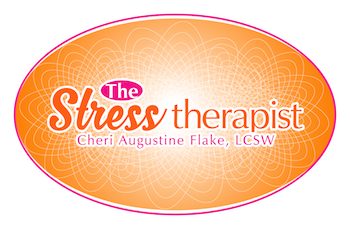Before You Give Up On Changing for Good ~ Ask Yourself One Question…
Why can’t we make the very things that we want habitual right away? I mean we want to change for good, right? So why don’t we just do whatever it is that we want to do?? Scientist have been looking into this and some of the findings are astounding. You’d be surprised that an intrinsic reward for doing the behavior that you want to make habitual is actually better than picking an external reward. Today we’re gonna look at this and a couple of other ways to make whatever you want habitual easier and more enjoyable by asking yourself one pivotal question.
In this episode we will learn:
~ What can I ask myself to redirect my motivation toward my desired goal?
~ What is an intrinsic reward and how does it make me stick to my plan in reaching my goals?
~ A meditation experience using the mantra so hum with the musical stylings courtesy of The Sonic Yogi
Meditation Music by Sonic Yogi
Deep Sleep With Singing Bowls
Pythagorean Dream
Listen to Sonic Yogi on: Spotify Apple Music Amazon Music Watch Sonic Yogi’s Ted Talk
Interesting Mentions: Heartwood Retreat Center : location for Cheri’s Georgia Mountain Retreats
The Host for this podcast: Cheri Augustine Flake, LCSW The Stress Therapist and Author
Join Cheri Flake on her Next Meditation And Yoga Retreat!
In the mountains or At the beach
Love the show? Please rate and review us! Send some love bucks to the show: Paypal: cheri@thestresstherapist.com Venmo: @cheri-flake Thank you!
Stay in touch with Cheri and be a part of the Stress Therapy Community!
Twitter: @stresstherapy
Instagram: @thestresstherapist
Facebook
Linkedin
Website
YouTube
Join Cheri Flake on her next retreat!
Register for a meditation and yoga retreat in the gorgeous Georgia Mountains and walk away with a new, solid daily meditation practice with benefits that last a lifetime!
OR
Register for sweet, peaceful meditation and yoga beach retreat on Jekyll Island seaside right off the coast of Georgia.
Want Cheri Flake to be your therapist? If you live in Georgia go here to schedule a free 15 minute consultation
Follow Cheri Flake on GoodReads
Buy Cheri’s book: Honey Do To Honey DONE! A Simple System For A Productive And Happy Household With Absolutely No More Nagging!
A word from your host, Cheri Flake, LCSW: Feeling good after our Stress Therapy session? Awesome. Check out the show notes to connect with me, The Stress Therapist on social media or go to www.iLoveTherapy.com to find out about meditation classes & meditation and yoga retreats.
[00:00] Hey, beautiful people. What’s up? It’s still January. Yeah, I know. And everyone’s still working on something that they want to change. And this is my favorite subject. I love it. Every single moment is an opportunity for change. And so how are we gonna do it? Before you give up completely, just ask yourself this one question. We’re gonna cover that today, and then we’re gonna meditate together. So relax and settle in and listen up, because your stress therapy session is about, about to begin right now.
[00:41] Hey, you beautiful people. It’s time for some stress therapy. A podcast about how to meditate and get better at stress for people living.
[00:48] In the real world.
[00:49] Finally, a place to park my 25.
[00:51] Plus years of experience of working as a psychotherapist in the mental health field. And now, your host, me, the stress therapist Cheri Flake. Before we get into the thick of it, we’re going to take a teensy, tiny break.
[01:15] Be right back. Hey, y’all. What’s going on? Okay, so let’s talk a little bit more about change. I know you want to give up.
[01:23] You want to give in. But listen, your desires do not give up on you, even if you give up on them.
[01:28] And we know this because the things that we want to change keep coming up. It keeps coming up year after year or day after day or whatever. It keeps coming up. Like, I am never, ever thinking about scuba diving, climbing Mount Everest. Those things will never bother me. It will never bother me that I’m not working out at the torture chamber, what you guys call the Pilates place, because I don’t care about those things. It doesn’t bug me. I don’t want, however, wanting to learn how to speak Italian or wanting to learn how to take better pictures or wanting to learn how to make my business better and teach people safe ways to engage in yoga so they can sit longer. Those types of things really do appeal to me. And if I don’t address them, it still bothers me. I clearly want to do that. It’s a part of your little perfect part inside of you that’s already perfect and knows what your gifts are. And that’s why that little finger is poking your shoulder over and over again. And that’s why people who go on and on and on, trying to explain to you at some random party all the reasons why they can’t do something, why they can’t write their book or why they can’t go to grad school or why they can’t speak Chinese or why they can’t travel to this place or why they can’t learn this language or why they can’t get up early, or it goes on and on and on. And they’ll spend all kinds of time explaining to you why they cannot do this one thing.
[02:58] They’re not explaining it to you.
[03:00] They’re explaining it to themselves. Because if you’re in Cherapy, if you’re in Cheri Flake school, you know that.
[03:06] There is not one of you. There are two of you.
[03:09] And that’s why you can have an argument with yourself. That’s why you can talk yourself in and out of things. That’s why when you wake up and you know the best thing for you is to get up and go give your dog a long walk, there’s a part of you that wants to stay in bed. That part of you is separate from you. There are two of you, okay? And so you got to be the one that’s listening. You are the listener. You’re the perfect and creative and beautiful, holy thing that was made by this wonderful, beautiful God or source or Buddha or Allah or whatever you call it. Susie, Patsy, Jimmy, whatever you call it, that’s you, and you are the listener.
[03:44] And in order to listen to the listener, you need to be able to win those little battles in your head.
[03:50] But anyway, there are lots of things. They’re not even going to come into your consciousness because they’re just not a part of who you are. So I think these desires that we have, these things we want to become.
[04:00] These things we want to try or.
[04:01] Experience, I think they’re a part of.
[04:03] Us, and we kind of have to honor that.
[04:05] So before you give up on changing that part of you, before you just.
[04:09] Throw the towel in, ask yourself this one question. Why do I want to do this thing?
[04:18] Today I was listening to Kelly McGonagall, and I know I’ve mentioned her before.
[04:21] And know having the magical name of Professor McGonagall because she works at Stanford University. She is also a neuroscience researcher. She was talking about the intrinsic reward of doing something that you want.
[04:39] And I think this intrinsic reward idea.
[04:41] Is related to the idea that you.
[04:43] Want to do it because it’s already.
[04:45] A little bit of a piece of you behaviors that we’re trying to make habitual.
[04:49] And the idea is that rather than being like, well, I’ll go give my.
[04:55] Dog a long walk, or I will go work out, or I will practice.
[04:59] Chinese, and then I will give myself.
[05:01] A cup of coffee, or I’ll have.
[05:02] A nice treat, or I’ll go visit.
[05:04] A friend or whatever that external reward might be that you’re setting up for yourself. Those are not as successful as finding and understanding and remembering and using the intrinsic value that that behavior brings you.
[05:19] So if it’s walking your dog, she.
[05:21] Was using that as an example. You’re outside, and you’re actually in the moment being like, oh, my gosh, this is amazing.
[05:28] I love this.
[05:29] This is why I want to do this. Not for the coffee later, not for the treat later, but for the actual.
[05:35] Act of doing it, because there’s a.
[05:37] Part of you that wants to be outside and recognizes how good that is for you.
[05:42] And I think we have a lot of these commonalities because we’re human. It’s important for us to be outside. It’s important for us to exercise. These are all things that we intrinsically.
[05:55] Know are good for us. And certainly some practice of silence or stillness is one of those things. And she was saying that it takes.
[06:03] Six weeks for your brain to remember that this thing, whatever it is, whatever.
[06:10] New behavior you want to get in your life is good for you, is wonderful for you. And after six weeks, it starts to.
[06:18] Give you the endorphins and the dopamine and all of these lovely things to make you feel good after you do the thing that you want to do. So you got to hang in there, man. You got to hang in there. So during that time, during that interim period before the behavior has become habitual.
[06:35] You got to figure out how to stick with it.
[06:37] And so there are a lot of cool ways to do that. I’m going to talk about that next time, but today I just want you.
[06:42] To ask yourself this question. What intrinsic reward, what about this behavior do I think is going to bring me happiness, joy, peace, calm, better, mental health, better, sleep, better, anything? By simply doing this thing that I want to do, walk the dog, exercise, learn chinese, eat carrots instead of birthday cake. What intrinsic reward will I get from it? How does it make me feel when I do it? Why does it keep coming up, this thing that I really want to change in my life? What intrinsic reward do I get from it? How does it make me Feel? And how could it POSSIbly change my life if I stuck to it? All right, we’re going to take a quick break, and then we’re going to come back, and we’re going to meditate together. See you in a bite.
[07:48] In your comfortable sitting position with your chin level to the ground. Allow your head to settle. Allow your shoulders to settle. Allow your spine to settle all the way down to your sacrum. Allow your limbs and hands and feet to settle ANd Locating your breath. I’m going to give you the mantra.
[08:22] So.
[08:29] This is Sanskrit. It literally means I and that with a capital t stating that you are, that you are a part of this holy and divine perfection of source. Some sages say that so is the sound that the earth would make if you could hear it breathing, if you could become grounded enoUgh. So it’s a very grounding mantra.
[09:08] So.
[09:15] If you would like, you can breathe in on so and breathe out on. I’ll leave you with this mantra for a few minutes and then I’ll be back to guide you out.
[09:31] So.
[15:50] HUM.
[15:53] So.
[15:58] I am that knowing that a piece of beautiful God’s perfection is inside of you, that the whole universe resides inside of you, that your connection can be with this mantra, which literally means mind tool to bring yourself closer to all that is divine.
[16:40] So.
[16:45] Release these words into the ether coming back to this time, in this moment, in this space, in this room. Take a long, slow awakening breath in your nose, letting it all go out of your mouth and once again in your nose and out of your mouth and one last big, deep cleansing, awakening breath in your nose and letting it.
[17:28] All go out of your mouth.
[17:30] And when you’re ready, you can open your beautiful eyes.
[17:44] Close.
[17:45] I so hope that this was helpful for you and that you will be able to realize why this thing in your life keeps coming up. This thing you want to change, the person you want to be, the place you want to go, the thing you want to experience, whatever you want to become, why it keeps coming up is because there’s some intrinsic value when you engage in it occasionally. And so when you can kind of discern what that is and stick with it for only six weeks, according to the master of neuroscience, behavioral change and stress, Kelly McGonagall, if you can stick with it for six weeks, there’s a lot that comes to you.
[18:25] I mean, it’s worth a shot, right?
[18:26] I mean, what if it works, right?
[18:28] Okay, so next time we’re going to.
[18:30] Talk about that interim period, those six.
[18:32] Weeks or 21 days or whatever they say, however long it takes to make a new behavior habitual.
[18:38] What do you do during that interim period in order to get your butt on the cushion, the leash on the.
[18:44] Dog, to crack the book open, to.
[18:46] Get the gym, whatever it is, what do you do during that time to make sure that you’re sticking with it during the hard time when it hasn’t become habitual yet? So I’ll see you next time.
[18:58] Have a lovely, lovely day.
[19:00] How y’all feeling after that stress therapy session?
[19:03] Good. Awesome.
[19:04] Check out the show notes to connect with me, the stress therapist on social media, at thestresstherapist on Instagram, and at stresstherapy on Twitter. You can always go to ilovetherapy.com to find out about meditation and yoga retreats.
[19:18] And other offerings that I have there.
[19:20] If you live in Georgia and you’re.
[19:22] Ready to be one of my clients.
[19:23] Go to my website to find out.
[19:24] How you can sign up for a.
[19:26] Free face to face consultation with me.
[19:29] At the very least, jump on my.
[19:30] Mailer so you don’t stress or miss one thing.
[19:34] Until next time, have a lovely, lovely day.


